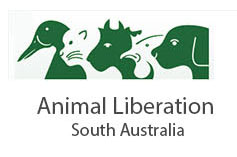Go vegan – it’s good for you, and good for the planet!
Helping animals doesn’t have to be complicated, time-consuming, or even expensive.
It’s about being informed and making simple, every-day choices that can free animals from suffering and abuse.
The first step is knowing which choices to make.
Today’s common Western diet of meat and dairy, which is high in saturated fats and cholesterol, and contains very little fibre, contributes to many health problems.
Join the many people who are taking advantage of the health benefits of low fat, high fibre, and cholesterol free plant-based eating. This can help you to stay healthy, maintain your optimum weight, and keep your arteries open throughout your life.


How to get variety in a vegan diet
Click on each heading below to see more
Legumes and pulses
These include chick peas, red kidney beans, cannellini beans, mung beans, adzuki beans, lentils and split peas, to name just a few.
These are best soaked overnight (with the exception of lentils and split peas) with the soak water discarded to remove gas. They are then cooked, without salt, until tender. Add salt last.
The resulting protein is about twice as digestible as animal protein! They are also high in dietary fibre.
Adding a small amount of kelp (sea vegetables) when cooking legumes helps to alkalise them, therefore making them easier to digest.
Whole grains
Millet, brown rice, buckwheat, quinoa, wheat, barley and corn.
These must be cooked well and chewed thoroughly to incorporate saliva which is needed to aid digestion.
Unfortunately, wheat is often over refined in many packaged processed foods.
Take a break from wheat where ever possible and substitute other grains.
Nuts and seeds
Almonds, cashews, brazil nuts, walnuts and pecans can be added to cooking and eaten as snacks.
So can sesame seeds, poppy seeds, pumpkin seeds, flax seeds, chia seeds and sunflower seeds.
Flax seeds are very important for omega 3 and fibre. They are high in protein, calcium and phosphorus. They help control blood sugar levels and reduce cholesterol.
Fruit and vegetables
Vegetables cleanse the body and purify the blood.
Lightly cooked vegetables retain most of their vitality.
Vegetables and fruit are best eaten in season and grown organically without the use of pesticides
Oils
Use cold pressed extra virgin olive oil, grapeseed oil, organic canola oil.
Watch out though … so-called ‘vegetable oil’ is often palm oil, in disguise, so avoid it!
Sea vegetables
Kombu, wakami, kelp and nori are a valuable source of nutrients including calcium, beta carotene and Vit B 12.
They rid the body of toxins and strengthen immunity.
They’re available from Asian super markets.
Soy products
These are best eaten only in moderation. Always look for organically certified soy products such as tempeh, tofu, soymilk and miso.
Tempeh is fermented soy beans which is very easy to digest. It is excellent for children and for people who are convalescing from illness, as it is packed with essential nutrients, such as protein, calcium, iron and B group vitamins.
Tofu is low in calories and high in nutrients. It is best eaten only occasionally as it is not as easily digested as tempeh.
Plant-based milk
There are lots of alternatives to dairy milk – soy milk, oat, rice and almond milk.
However, you don’t need to drink any type of milk to be healthy.
Water and fresh fruit and vegetable juices are a much healthier option.
Plant-based meats
Supermarkets these days are stocking plenty of plant-based meats, which claim to have the same taste and texture as animal meat.
They are generally made from products such as wheat, soy, tofu, potato starch, coconut oil, nuts and seeds and vegetables.
Different brands have different nutritional quality – some of them contain fillers and added sodium, and can be high in saturated fats.
And according to non-vegans, some taste more like animal meat than others.
So be careful when selecting these products. Check the ingredient list, and look for:
- Plenty of nutrients including whole foods
- Low saturated fat levels
- Lower sodium levels
- Added vitamins and minerals
- Protein-rich ingredients, such as pea protein
Meeting your nutritional needs
- Protein: A mixture of proteins throughout the day will provide enough essential amino acids. Plant matter contains protein. Almost all foods except for alcohol, sugar, and fats are good sources of protein. Vegan sources include: potatoes, whole wheat bread, rice, broccoli, spinach, almonds, peas, chickpeas, lentils,( all pulses and legumes) dark leafy vegetables such as kale.
- Iron: Iron is an essential mineral needed by our bodies for use in many functions, including oxygen transport and energy production. You can increase your iron intake by including foods such as leafy green vegetables, whole grains, beans, legumes, nuts, seeds. Include a good source of vitamin C (such as citrus fruits, fruit juice, berries, tomatoes, capsicum, broccoli ) with each meal to help increase the amount of iron you can absorb.
- Calcium: Calcium is an important nutrient for healthy bones and teeth. In addition, it plays a role in the clotting of blood and the functioning of nerves and muscles. Taking a Vitamin D supplement with calcium aids its absorption. To increase calcium intake, include dark leafy green vegetables, quinoa, sea vegetables, almonds, legumes.
- Vitamin B12: Vitamin B12 protects the nervous system, promotes blood formation and cell division. To increase Vitamin B12 intake, eat fortified cereals and soy milk, and miso. Nutritional yeast flakes, are also called savoury yeast flakes, which are an inactive yeast (NOT brewer’s yeast.)

More information
Physicians Committee for Responsible Medicine: Plant Based Diets
Colleen Patrick-Goudreau, Pacific Vegan: From Excuse-itarian to Vegan
Colleen Patrick-Goudreau: Vegan Excuses & Myths
Farm Sanctuary: What came before
PETA: The ultimate vegan guide to Adelaide
Happy Cow: Vegan and vegetarian restaurants in South Australia

